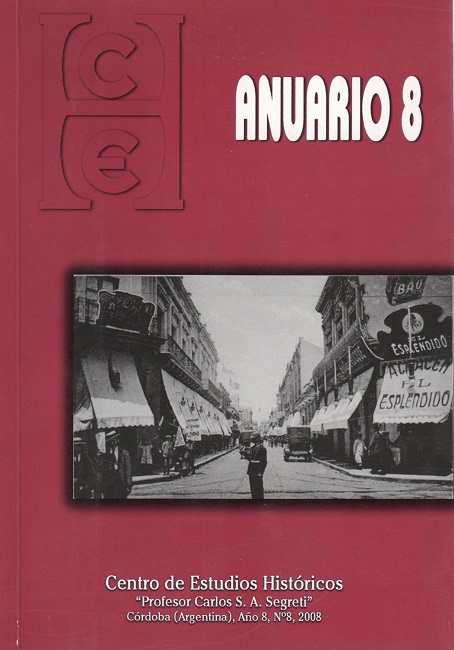Agrarianism and social conflict in Tucumán in the 1920s Abstract
DOI:
https://doi.org/10.52885/2683-9164.v.n8.23194Keywords:
agrarianism, social conflict, cañeros, arbitrationAbstract
In the framework of a persistent situation of sugar cane overproduction, the «cañeros» (sugar cane farmers and peasants) of Tucumán held an agrarianist conception that gave them support in the deep social conflict against the «ingenios» (sugar factories), which led to the first agrarian producers’ strike in the Province in 1927. The solution of the strike, trough the arbitration of President Marcelo T. de Alvear, brings substantial changes in the operation of the sugar industry, especially in their distributive patterns. This «cañeros’ version» of agrarianism vindicated the necessary participation of small and medium- sized sugar cane producers as a proof of the social democracy in the rural scene, denounced the abuses by the ingenios and maintained the necessity that sugar cane producers obtained an adequate retribution by their production. This conception not only gave life to this social movement; its peculiarity consisted in its political projection, because the political parties that integrated the provincial legislative body adopted these postulates, and besides it gave birth to a new organization, the Agrarian Party, that obtained a legislative representation at the end of the decade.
Downloads
References
GREENBERG Daniel, «Sugar Depression and agrarian revolt: the argentine radical partyand the Tucumán cañeros’ strike of 1927», HAHR, vol. 67, núm. 2, 1987.
SANTAMARÍA Daniel, Azúcar y Sociedad en el Noroeste Argentino, Buenos Aires, IDES, 1986.
Downloads
Published
How to Cite
Issue
Section
License
Aquellos autores/as que tengan publicaciones con esta revista, aceptan los términos siguientes:
- Los autores/as conservarán sus derechos de autor y garantizarán a la revista el derecho de primera publicación de su obra, el cuál estará simultáneamente sujeto a una Licencia de reconocimiento de Creative Commons. Se puede compartir, copiar, distribuir, ejecutar y comunicar públicamente la obra, siempre que: a) se cite la autoría y la fuente original de su publicación (revista, editorial y URL de la obra); b) no se use para fines comerciales; c) no se altere, transforme o genere una obra derivada a partir de esta obra.
- Los autores/as podrán adoptar otros acuerdos de licencia no exclusiva de distribución de la versión de la obra publicada (p. ej.: depositarla en un archivo telemático institucional o publicarla en un volumen monográfico) siempre que se indique la publicación inicial en esta revista.
- Se permite y recomienda a los autores/as difundir su obra a través de Internet (p. ej.: en archivos telemáticos institucionales o en su página web) después del proceso de publicación, lo cual puede producir intercambios interesantes y aumentar las citas de la obra publicada. (Véase El efecto del acceso abierto).


